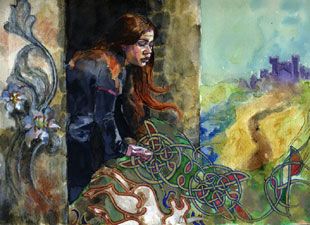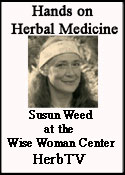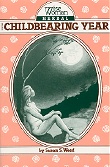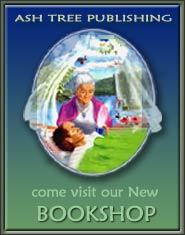HERBAL PHARMACY - Making Herbal Medicines
by Susun Weed
In your herbal pharmacy you transform fresh and dried plants into herbal medicines. Learning to identify and use the common plants around you is easy and exciting, beneficial and safe. Making your own medicines saves you money if you follow the Wise Woman tradition of using local herbs, free for the taking.
Even one day's work in field, forest, and kitchen can provide you with many years' worth of medicines. When you make your own, you know for sure what's in it, where it came from, when and how it was harvested, and how fresh and potent it is.
 Dried herbs are best for the infusions recommended in this book. Stock your herbal pharmacy with your own foraged or cultivated dried herbs; expand your resources and experiment with new herbs by buying dried herbs from reputable sources.
Dried herbs are best for the infusions recommended in this book. Stock your herbal pharmacy with your own foraged or cultivated dried herbs; expand your resources and experiment with new herbs by buying dried herbs from reputable sources.
Fresh herbs are best for the tinctures and oils recommended in this book. If you can't make your own, buy from sources who wildcraft or grow their own herbs to use fresh in preparations.
Whether you buy or make your own medicines, remember, herbal remedies may not work or may work incorrectly if they aren't prepared correctly. Read this chapter carefully; it contains easy to follow instructions for every remedy and preparation mentioned in this book [Wise Woman Herbal for the Childbearing Year].
Making Herbal Medicines
The art of making herbal preparations is fascinating and complex. Each herb has one or more optimum methods of preparation, each method extracting different properties from the herb. Each type of preparation affects the body in different ways. The quality of herbal preparation is dependent on the quality of the herb used.
The quality of the herb is affected by the weather during the growing season, the thoughts of the gatherer or grower, when the herb is harvested, and the conditions surrounding handling and storage. The moon sheds her subtle influence on all of this, adding to the variables. It's no wonder that every herbalist creates unique herbal preparations, and that non-herbalists feel confused.
After years of experimenting and teaching, I offer these easy, foolproof instructions for home preparations of herbal medicines. All the equipment you need is probably already at hand: canning jars with lids, small jars with lids or corks, a sharp knife, a grater, several pots and pans, water, oil, vodka, labels, and a ball point pen.
I prepare herbal medicines in three bases: water, spirit, and oil.
Water-base products are teas, infusions, decoctions, syrups, baths, enemas, fomentations, eyewashes, and douches. Spirit-base products are tinctures, liniments, vinegars, and essences. Oil-base products include essential oils, infused oils, ointments, and salves.
In all bases I use no direct heat. No herbs are ever boiled or baked. This virtually eliminates burned, fried, and ruined medicines. And the finer vibrations of the plants appreciate the care.
In a water base, dried herbs produce the best potency. Spirit bases produce superior medicinals when fresh herbs are used, although dried roots and barks are often acceptable. Oil bases absolutely require fresh plant material. Don't assume that you have no access to fresh medicinal herbs. Weed Walks in city neighborhoods and along suburban sidewalks have never failed to provide an abundance of fresh medicinal plants.
Problems with Foraging
Are you concerned about contamination of wild plants with lead, chemicals, and dog doo?
Avoid harvesting herbs from roadsides where lead concentration is high; plants growing by busy roads will accumulate more lead. The nearer the plant is to the road, the higher the level of lead concentration.
If you can't find a particular herb anywhere except by a road, pick at least eight feet from the road edge; lead levels drop sharply in the first few feet. In cities, pick from parks and other out-of-the-way places. Be wary of vacant lots which may be contaminated with lead paint.
Avoid picking under powerlines and along roads where the weeds are controlled by spraying instead of cutting. Suburban lawns that have been doused with weed killers rarely grow medicinal weeds, but if you support chemical warfare (distorted, mutated, sparse weeds are good clues), avoid that area.
Avoid gathering herbs where canines gather. Dogs can pass parasites to humans.
Allow yourself to be guided by your intuition, as well as your senses and your intelligence, and you will know which areas to avoid when picking wild plants. Given the amount of chemical contamination on commercial herbs (and fruits and vegetables, for that matter), I honestly feel safer taking risks in the wild.
Open your eyes and observe the green abundance. Open your heart and feel the green joy. Come with respect for green power. The devas of the plant kingdom welcome you.
by Susun Weed

Hands On Herbal Medicine 2 DVD set
 Hands On Herbal Medicine
Hands On Herbal Medicine
First Susun Weed leads her students on a walk around her land at the Wise Woman Center. She teaches about plant and animal cells, nourishing herbal infusions, digestive fire and grounding. Herbs discussed include mitchella, hemlock, sheep sorrel, white pine, nettles, and mushroom turkey tail. In the second part, Susun teaches about preparing herbs for use. The five menstruums she uses are honey, water, vodka, oil, and vinegar. Each one is explained and demonstrated. Herbs discussed include catnip, ginko, shiso, nettle, and wormwood.
Time: Part 1 - 1 hr 22 min Part 2 - 1 hr 28 min.
Produced in 2009 by HerbTV Studio
Order Hands On Herbal Medicine DVD in our Bookshop






